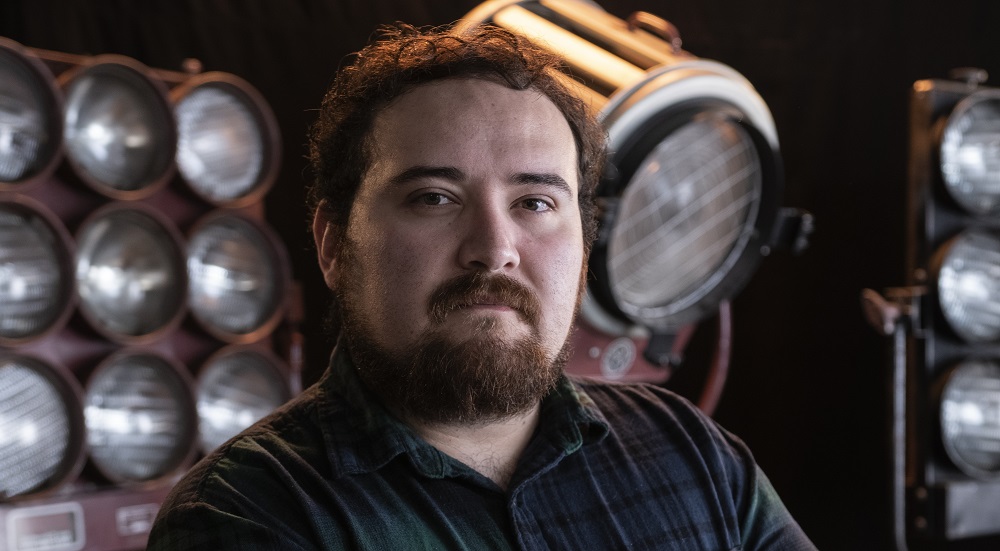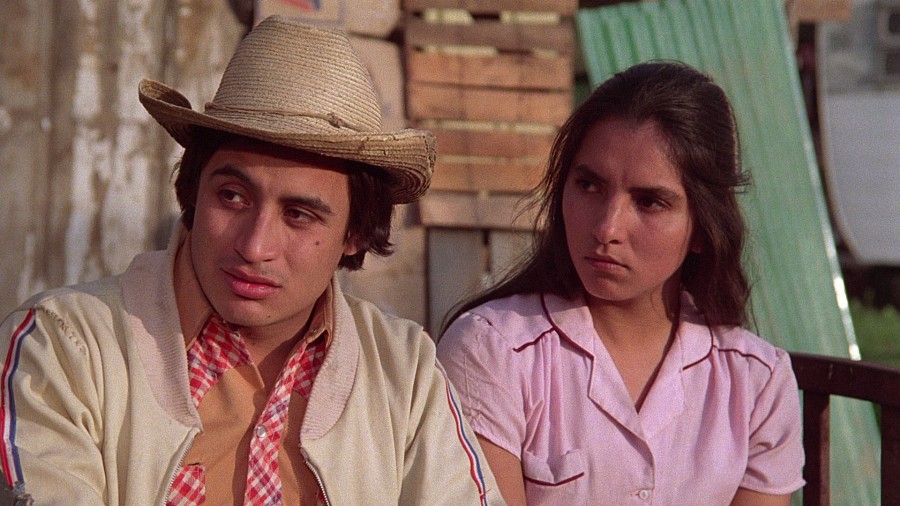We are highlighting content for National Hispanic Heritage Month all week, including this interview with “El Norte” director Gregory Nava and upcoming interviews with Pablo Larrain, and Edward James Olmos, as well as a piece on Roger Ebert‘s writing about Hispanic culture in film and the personal essay below by Carlos Aguilar.
A few thousand miles north of where I was born, there exists a foreign territory with an alluring mysticism to it—at least when appraised from afar. It’s a place where people appear to live without scarcity and triumph seems afforded to anyone willing to pursue it, a promised land of sorts, as lavish as it is unattainable for those born outside its borders.
As a boy in Mexico City whose parents struggled to get by, the United States carried such magical connotation in my imagination. A place where things were simply better. But now, with over half my life spent here, that castle in the sky, difficult to reach but worthy of the trek, has revealed itself a benevolent yoke.
Siblings Rosa (Zaide Silvia Gutiérrez) and Enrique (David Villalpando) share in that realization at the end of Gregory Nava’s pioneering 1983 feature “El Norte,” in which they flee war in their native Guatemala hoping to secure stability once on American soil. They too saw the U.S. through rose-colored lenses from a distance, a society where “all the people, even the poor, own their own cars,” like their father would tell them.
Luxuries, as known in the capitalist realm, don’t exist in their family’s humble lifestyle, yet there’s immeasurable value in their joyful togetherness. But unrest in their homeland would take those priceless pleasures from them, the kind that even dollars can’t purchase.
Nava’s Oscar-nominated screenplay, co-written with Anna Thomas, brilliantly traces Enrique and Rosa’s voyage from their spiritually charged village through their trip’s treacherous stretch across Mexico, and as they eventually settle in Los Angeles.
Disillusionment comes gradually, and “El Norte” deftly follows the gut-wrenching transition from envisioning their new home as a perfectly safe harbor, to recognizing that the dream they chased through unspeakable horrors may ultimately not apply to them.
For all it has given me in access to paths thought improbable for a lower class kid, “el norte” (“the north,” as the superpower is colloquially referred to among Latin Americans), has taken plenty from me, as it does from all undocumented immigrants—Enrique and Rosa not being the exception—in the form of self-worth, cultural identity, and freedom.

At some point along the journey that living “paperless” on this side of the river entails, there’s a life-altering introspection one must engage in. One must evaluate what’s been lost and gained after migrating to a country that uses opportunity as its major selling point, but that charges the poorest its highest costs to attain.
Our willingness to sacrifice it all goes beyond just a mere “grass is always greener” predicament, because no one wants to uproot memories and forego seeing loved ones—sometimes forever—for a slightly more favorable future. This dire enterprise differs from moving cities in search of a better paying job or spending a year oversees studying. What’s at stake for immigrants from disadvantaged backgrounds, without the benefit of entering legally, is the remote possibility of securing basic necessities through hard work; in essence, our right to survive.
Of course, it’s not about happiness either, because shelter and sustenance for the physical body don’t translate into emotional satisfaction. Often, what occurs resembles more a tradeoff than an upgrade in quality of life. In the U.S. we manage to make a living, in the shadows and in perpetual fear. But that precarious financial improvement translates in the abandonment of the people and places that gave us meaning—and that’s only the entry fee.
As if walking through a rat-infested tunnel to cross the line between hope and despair hadn’t been sufficient agony, Rosa soon experiences first-hand the ominous wrath of ICE, or “la migra,” only to escape with the help of coworker Nacha (Lupe Ontiveros). The same goes for Enrique, whose efforts to excel at his job as a waiter are thwarted at the hands of a disgruntled employee’s call to the authorities that forces him to drop his position. Again the siblings must run. This time from one gig to another, all the while convincing each other their decision to migrate north was the wisest.
In the face of mistreatment and persecution, the question arises of whether staying would have been easier. That’s anything but a fair query, since for Enrique and Rosa remaining static meant death and for others the desperation that comes from not having the resources to maintain even an austere existence. Neither choice comes without consequences of the harshest type, as it’s always the case for those that have the least to spare, but when the one to depart is taken, is a toss up without guarantees.

¡Querías norte! (You wanted the north!), we tell each other cheekily as response to any complaints about the troubles with the American dream. We pretend there was ever much of a feasible alternative. For those that come as a last resort, should they not venture into the unknown for a shot at earning enough cash so that does that stayed don’t struggle? And for those whose lives were livable there but devoid of upward mobility, are they not allowed to aspire to more? If the answer is no, then millions, including myself, are condemned to our circumstance by birth.
Coincidentally, “El Norte” hit theaters the same year famed U.S. -based, Mexican band Los Tigres del Norte released their blistering song “La Jaura de Oro,” which narrates the conflicted sentiments of an undocumented Mexican man for whom the United States has become a golden cage. Its lyrics detail the conundrum of being able to support his household, but simultaneously feeling trapped while unable to return home even if only for a visit, and seeing his Americanized children losing sight of their origins.
The track questions, “what’s money good for if I’m like a prisoner inside this great nation, when I remember I cry, even if the cage is golden it doesn’t stop being a prison.” It goes on to explain that this man’s world is contained between his job and his house. He doesn’t go out much, as he’s terrified of being randomly apprehended and deported. Now, though he’s succeeded at obtaining certain material goals, his humanity remains compromised.
First it’s perceived as paradise, then the golden cage loses its shine. The tables turn, and in a cloud of nostalgia the promised land becomes the one you left, the one you’ve longed for all these years. It’s a difficult feeling to explain, to want to stay inside the enclosure because security, often both economic and physical, is within its bars, while developing a growing yearning for “el sur” (the south), where there was a sense of belonging.
Some days, when missing Mexico turns overwhelming, there’s a fearful contemplation that comes over me and demands I ponder where my home is. Is it the geographical womb or the state that reluctantly equipped me to practice my passion? Could home be both, partially and in collaboration? But then I remember we have been made to choose, either by poverty, political instability out of our control, or the unfortunate reality of having been born on the wrong side of privilege.
We are not allowed to have the homeland and the dreamland at once, and so we are undocumented, without a permanent home.
On her dying bed, Rosa sums up our unsolvable dilemma. “In our own land, we have no home. They want to kill us … In Mexico, there is only poverty. We can’t make a home there either. And here in the north, we aren’t accepted. When will we find a home, Enrique? Maybe when we die, we’ll find a home,” she despondently recites.
But in spite of the fatality of her words, I’m always reminded that our very journey is a testament to a desire to continue. We didn’t give up when all was seemingly lost, or succumb to despair when we traversed entire countries—continents even—to keep fighting in a world that would prefer surrender. It could be, in fact, that the immigrant’s only true home is hope.












